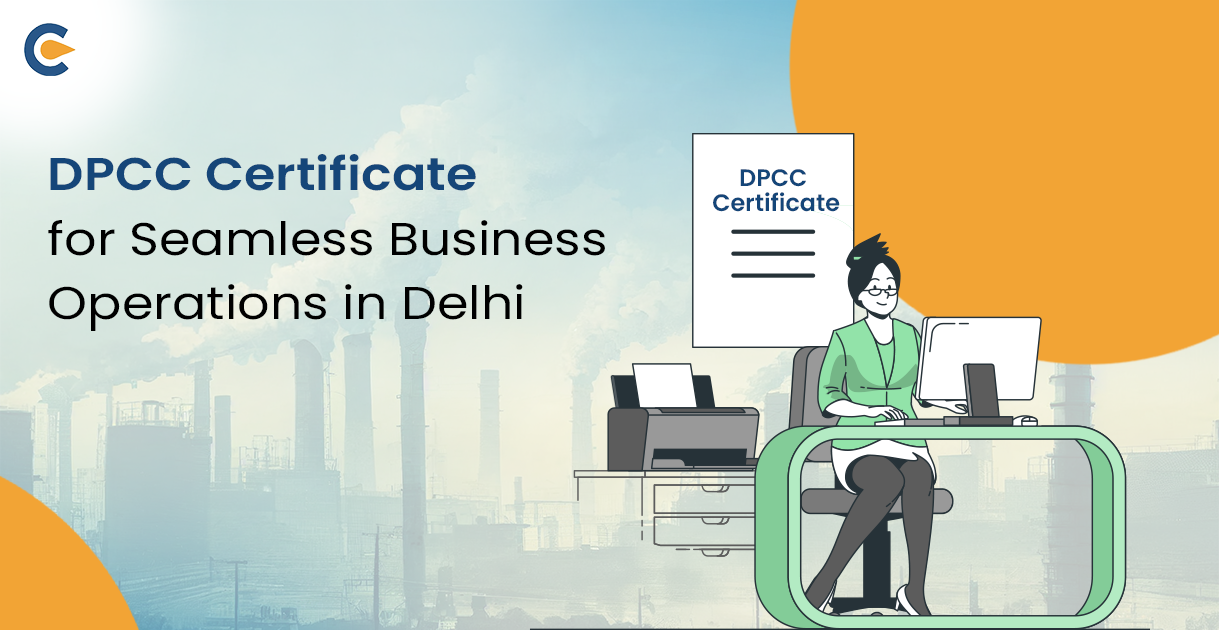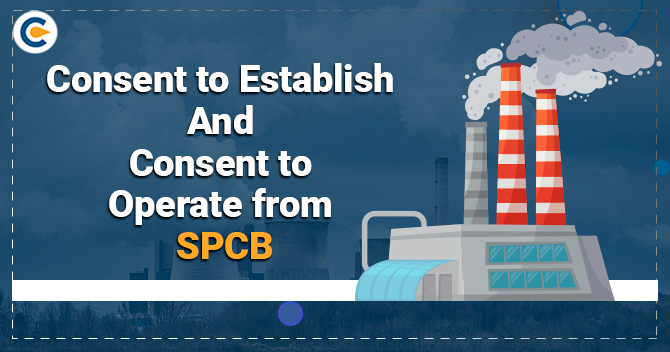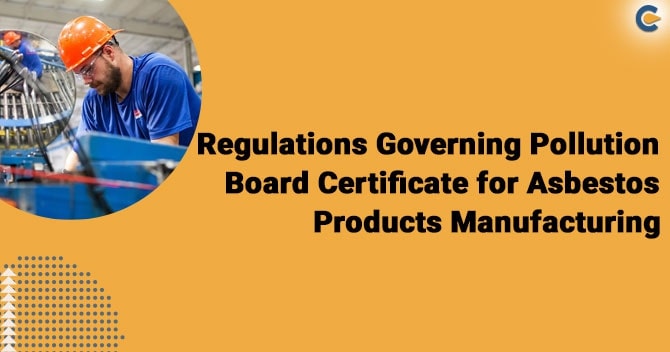The Government of India and State governments have been endeavouring to minimize or curb the growing menace of pollution and environmental degradation. Many cities face environmental pollution, degrading air quality, and accumulation and mismanage of industrial waste and effluents. In Delhi, the MoEFC constituted the Central Pollution Control Board (CPCB) to strengthen air and water pollution control in 1974. CPCB is the nodal state agency for pollution control and Green Development and also the supervisor of all major State and regional pollution control authorities in the country. DPCC was set up by the CPCB in 1991 to administer and regulate pollution control laws and regulations in Delhi and has powers to inspect, authorize, regulate, and penalize manufacturing units, factories, and production plants in accordance with the provisions of the Air, Water and Environment Protection Act. The DPCC enjoys all major powers of the State Government to exercise pollution control measures as per the laws and guidelines set down by the Government and plays a crucial role in monitoring and controlling pollution levels in the city. Industries must obtain a DPCC authorization certificate before commencing their operations. It covers two Non-Objection certificate (NOC) components – the Consent to Establish (CTE) and Consent to Operate (CTO). We shall learn more aboutthese compliances later in the blog.
Importance of DPCC Certificate for Industries
The importance of the DPCC Certificate for Industries can be understood as this acts in a dual capacity. It represents that the company or business has complied with the requisite environmental compliances and licensing requirements for pollution control, hence fulfilling its obligatory duty towards the law. On the other hand, it also signifies that the entity is inclined towards ecological conservation and sustainable development. A DPCC certificate also confirms that your business is carrying out its operations while keeping in view the legal obligations with respect to the natural environment, primarily imposed by the following legislations –
- Air (Prevention and Control of Pollution) Act, 1981
- Water Act, 1975
- Environment Protection Act, 1986.
- Battery Waste Management Rules, 2016
- Hazardous Waste (Transboundary Movement)Rules, 2016.
- Bio-Medical Waste Management Rules, 2016
- Plastic Waste (Management & Handling) Rules,2016
Roles and Responsibilities of DPCC
The Roles and responsibilities of DPCC are to ensure that market players sufficiently implement and observe the overall sustainability and environment protection laws. Not only does it promote ecological stability and better living conditions for everyone, it contributes to several other functions as well, such as –
- It gives suggestions and recommendations to the Government of Delhi on how to make water andits pollution control more effective, promote sustainability, and ensure ways in which people can observe eco-friendly practices and environment conservation at all levels.
- It promotes consumer awareness ofEnvironmental protection by organizingcampaigns and programs on eco-friendly practices such as waste recycling, use of biofuels, safe disposal of hazardous waste, use of Electric Vehicles, etc.
- Prepare a compliance framework to be followed by industries and factories setting or already carrying out operations in Delhi so that they observe proper waste management and do not exceed statutory pollution levels.
- Collect samples and analyze data on pollution in the natural environment, such as soil degradation, water quality, chemical waste dumping, e-waste, etc. The data and samples collected can be sent to laboratories for tests and research and thus help in formulating measures and products to combat andreduce such adverse effects of effluents and waste on the environment.
Applicability of DPCC Certificate
Applicability of DPCC Certificate industrial units and factories that generate large quantities of bio-medical, chemical, and hazardous waste material. Based on the nature and levels of pollution generated, industries are divided into four categories: red, orange, green, and white.
Red Category
These industries are the most polluting in terms of either volume or toxicity of waste generated. The factories and units under this category have a pollution index of more than 60 and include industries such as automobile manufacturing, Gen set and generator making, lead-acid battery, fiberglass, firecracker manufacturing, etc. manufacturing. Such industries are not allowed to set up production units in Delhi within or near areas designated for ecological or wildlife protection purposes or environmentally sensitive areas. To their extremely polluting and noxious nature.
Orange Category
These industries have a Pollution index of between 41 and 59. The manufacturing units under this category include Bakery and confectionery units, rolling stock manufacturing, jute processing, thermometer manufacturing, jute processing, food and food products processing brickfields, etc. These industries are required to obtain consent from the CPCB and other relevant environmental protection Bodes under the provisions of the Air and Water Acts.
Green Category
The Industries under this category are on the lower side when it comes to pollution since they have a pollution index of 21to 40. Industries that fall under this category are aluminum utensils, ayurvedic manufacturing, candy manufacturing, cement products, etc. These industries still require a valid Consent to Operate and Consent to Establish certificate from the DPCC.
White Category
The Government has introduced a new category of industries that do not produce significant air or environmental pollution and, hence, are exempt from the requirements of obtaining a DPCC certificate. This category consists of industries that have a pollution index of up to 20 and are practically non-polluting, such as chalk making, tea blending and packing, cotton and woolen hosiery making, electric lamps, and CFL making by assembling only, etc.
Consent to Establish and Consent to Operate
The Consent to Establish (CTO) and Consent to Operate (CTE) are NOC documents issued by the DPCC, signifying that a particular business or industry has complied with all major and minor environmental compliances and is authorized to set up and carry out its operations at a particular place.
To make an application for a DPCC certificate, the applicant is required to register on the Online Consent Management and Monitoring System (OCMMS) of the DPCC. Thereby, the applicant is required to provide requisite details about the business, such as industry type, capital invested, details of the factory unit or manufacturing plant, details of the applicant, etc. After submitting all relevant details, the applicant must pay the application fees for the authorization. Application Fees for CTO and CTE have to be filled out separately in accordance with the Air and Water Acts.
The application fee is calculated automatically by the portal once the applicant provides details about the industry category, capital investment, and consent Type (CTO/CTE). After filling out the online application, submitting documents, and paying the government fees, MoEFC examines and evaluates the applications and updates on the acceptance/rejection of the same within four months.
What are the documents required to obtain a DPCC certificate?
The following list states the documents required for obtaining a DPCC Certificate–
- Authorized Government ID, PAN, Aadhar, etc., of the owner of the factory, manufacturing unit, or plant.
- Site Plan and Factory Layout of the production or manufacturing unit for which the DPCC online registration is made.
- Ownership proof, such as lease deed, rent agreement, etc., of the Factory Site
- GSTIN Certificate of the business activity.
- Corporate documents of the company – MOA, AOA, Partnership or LLP Deed, Ownership agreement, incorporation certificate, CIN, DIN, etc.
- CA Certificate, approving the total cost and viability of the project
- Proof of ownership of premises, lease deed, or any other document
- Clearance of documents from the Municipal Corporation or Statutory Authority
Process of DPCC Registration
The process of DPCC registration has been greatly simplified by making it online. Is it as follows –
1. Register on the OMMCS Portal
The First step towards making an application for a DPCC Certificate is registering on the Online Consent Monitoring and Management System (OMMCS) of the MoEFC Website. After logging into the portal, the applicant receives a unique ID number, and the account is created.
2. Submitting the Required Documents
After registering on the OMMCS portal, the applicant should submit the required documents to obtain a DPCC certificate.
The journey towards achieving your DPCC license unfolds in a sequence of steps that begin with setting up an account on the official DPCC website. With your account up and running, you can proceed with the application form.
It is important to make sure to fill in each section of the form correctly and upload all the documents required for the consent form. This includes details and supporting documents about your details and details of the occupier/manager of the factory premises, your business operations, pollution control measures, and other relevant information.
The final step of this process involves paying the necessary registration fee. With your form submitted and payment made, the DPCC Online Registration process is complete. Thereafter, the DPCC takes about 25-30 days to process your application and promptly update the status of the CTO/CTE application. Post-grant of the CTO/CTE authorization, the business owner can set up or expand his industrial unit or factory.
Frequently Asked Questions (FAQs)
Delhi Pollution Control Committee or DPCC is the apex body, under the Ministry of Environment, Forest and Climate Change, to administer, enforce and regulate laws and regulations related to Pollution and Environment Protection within the National Territory of Delhi.
As per Section 21(A) of the Air (Prevention & Control of Pollution Act 1981) and Section 25(A) of the Water (Prevention & Control of Pollution) Act, 1974, businesses and industries operating in the National Capital of Delhi and which produce or have the potential to produce environmentally-hazardous or polluting products are required to make a DPCC Online registration.
A Consent to Establish (CTE) is a certificate of establishment given to a company by the Central Pollution Control Board, declaring that the entity is observing all possible environmental protection measures as per the Water and Air Acts, respectively.
A Consent to Operate is a license to carry out the manufacturing and production activities of the business, provided by the DPCC, in accordance with environmental protection laws.
CPCB has categorized industries into four colour-coded categories based on their pollution levels, they being red, orange, green, and white. Red is the most polluting category, and white signifies no pollution.
A DPCC online registration is valid for a period of 5 years in the case of red-category industries and ten years in the case of orange/green-category industries. Post-expiry of the registration, the same has to be renewed by repeating the DPCC online registration process.
the fees applicable for a DPCC online registration vary depending upon the pollution category of the industry, as well as the capital invested in the business. The fee calculator on the OMMCS, The fees for DPCC online registration, are calculated on the basis of these parameters only.
the CPCB usually updates on the status of the DPCC online registration for the purpose of applying for a CTE within four months days.
The following documents and details about your business and yourself are required for the purpose of making a DPCC online registration –
1. Authorized Government ID, PAN, Aadhar, etc., of the owner of the factory, manufacturing unit, or plant.
2. Site Plan and Factory Layout of the production or manufacturing unit for which the DPCC online registration is being made.
3. Ownership proof, such as lease deed, rent agreement, etc., of the Factory Site
4. GSTIN Certificate of the business
5. Corporate documents of the company – MOA, AOA, Partnership or LLP Deed, Ownership agreement, incorporation certificate, CIN, DIN, etc.
6. CA Certificate, approving the total cost and viability of the project
7. Clearance documents from the Municipal Corporation
Entities engaged in industries such as manufacturing, health care, E-waste Management, Solid waste management, Hazardous chemicals, heavy metals, etc, are required to have a valid DPCC license.
You can track the status of your DPCC online registration application by visiting the OMMCS Portal of the DPCC website. The application process is very transparent and allows the applicant to know the progress of their application.
The DPCC certificate is valid for a period of 5 years for industries in the Red Category, whereas for the Green and Orange Category, the same is valid for a period of 10 years.
Yes, as per MoEFC’s notification, industries falling under the white category are exempted from the licensing requirement of DPCC since they fall under the non-polluting category.
A DPCC Certificate cum NOCis useful for obtaining several industrial licenses such as Fire NOC, expansion or opening or new unit of the business, change in water or electricity connection, Registration with Municipal Corporation, and Food License, among others.
You can easily apply for a DPCC Certificate by availing yourself of the quality consultancy services of Copbiz. Corpbiz is a market leader in industrial licensing and statutory compliance services provider. Our services ensure that you do not get entangled in the cumbersome bulk of documentation, regulatory filings, and registrations by streamlining the processes, letting you experience the ease of business formation and licensing from the comfort of your home.
Read our Article: How To Obtain DPCC Consent From The Delhi Pollution Control Committee?











